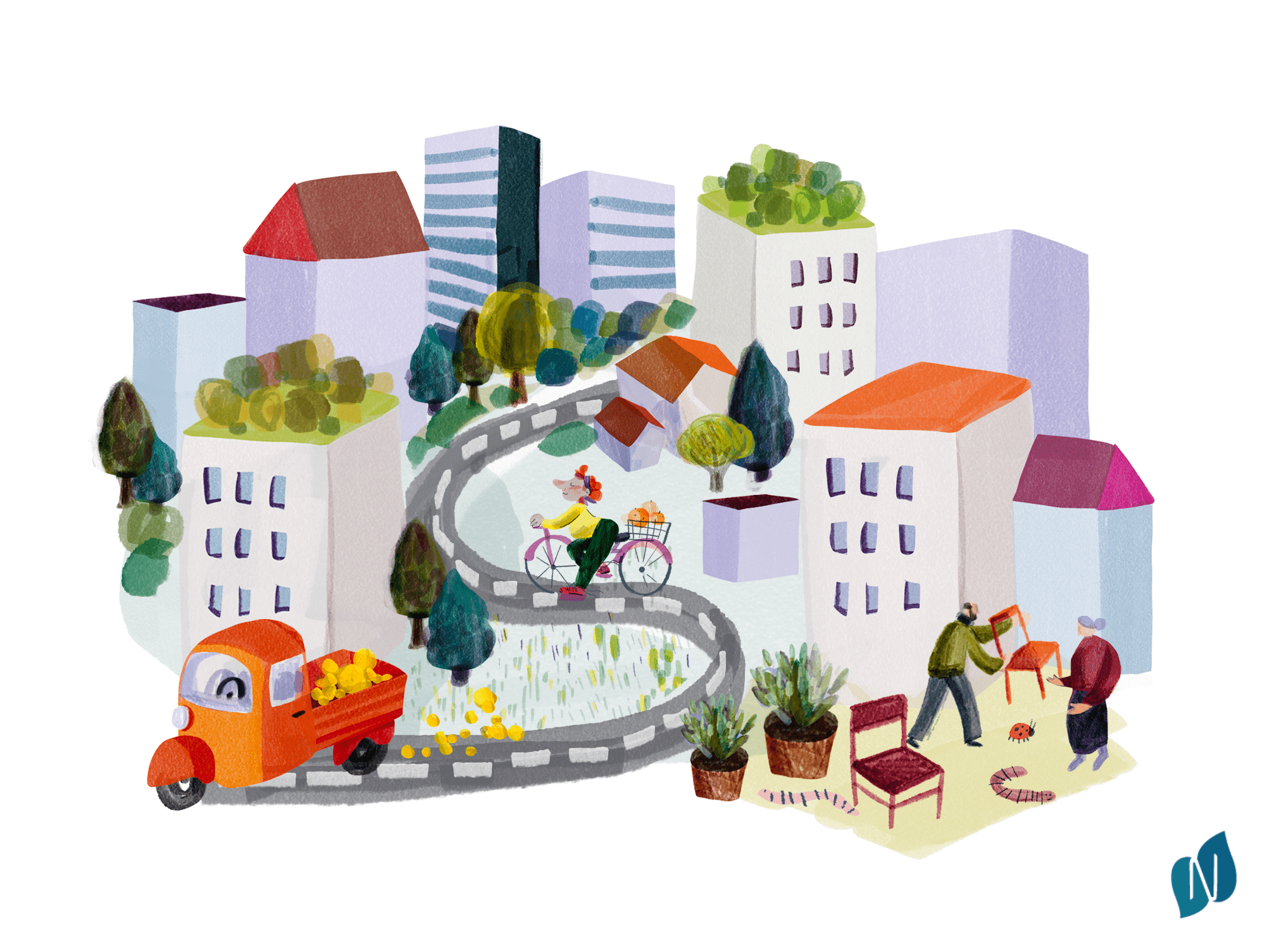At the end of August, the EdiCitNet team in Berlin hosted the first of a series of “City Exchange” events – a chance for project partners to meet in one of the project’s Front Runner Cities, learn from each other’s experiences of urban greening, edible cities + sustainable food and visit the two Living Labs located in the city.
At the event were project partners from Oslo, Andernach, Vienna, Sant Feliu de Llobregat, Sempter pri Gorici, Rotterdam and of course Berlin, including representatives of city administrations, urban farmers, green city activists and academic researchers.
The 4-day exchange kicked off with a visit to the Living Lab in the eastern district of Hellersdorf, a presentation by Prinzessinnengarten Kollektiv about their work in the garden and the Edible City Solutions they’re developing there, as well as a presentation from the local “Neighbourhood Management” team about their work to support and develop urban greenery and public green spaces for the neighbourhood. The end of the day featured a cooking workshop using saved food with local social enterprise – and EdiCitNet Award winner – Restlos Glücklich. It was also the time for members of the public to come by and meet the network, learn about the project and enjoy the sun in the garden!
The second day was based in Berlin’s other EdiCitNet Living Lab in Neukölln. Located in a still-active cemetery, this Living Lab is exploring the use of unused green space in cemeteries for urban gardening, and community events – side by side with visitors to the graves. After enjoying a tour of the Living Lab, from the raised beds to the field of edible crops and the herb garden, the visitors took part in a workshop exploring innovative ways to have more edible, green spaces in cities.
The weekend – also the final two days of the event – was spent networking and sharing knowledge with each other and also with the visitors to the Urban Gardening Summer Camp that was also taking place in the same location. There was a chance to enjoy talks, workshops and presentations all around the topic of urban agriculture and community gardens. Here too, the public were invited to come by and meet the project members and learn more at a public Visit the Living Lab event.
It was a truly inspiring, insightful and exciting three days in Berlin, and felt particularly special after nearly 2.5 years of online meetings and virtual work together. Thank you to Prinzessinnengarten Kollektiv, the Berlin Senate Department for Urban Development, Building and Housing and the Humboldt Universität zu Berlin for organising the event!
We are looking forward to the next City Exchange event, coming up in the city of Oslo, Norway.




